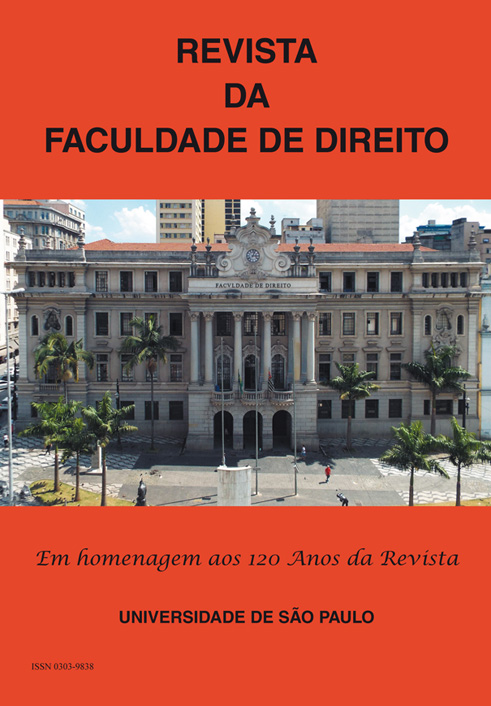Is still can think democracy from the constituent power? A discussion about Carl Schmitt
Keywords:
Democracy, Constituent power, Immanence.Abstract
The notion of constituent power has a central role in the history of modern political thought. This notion was theorized by different authors at different times. Furthermore, the notion of constituent power is closely linked to the idea of democracy, being widely used in its preparation. The paper aims to criticize the link between constituent power and democracy, because the latter must be elaborated with categories of immanence, under the risk of not being modern. Carl Schmitt successfully shows, despite unintended, the impossibility of thinking democracy using the notion of constituent power. Some theoretical consequences of that impossibility was made, by analyzing the contemporary attempts to link constituent power and democracy. One shows how they all lead to deadlocks and aporia.
Downloads
References
BÖCKENFÖRDE, W. Estudios sobre el estado de derecho y la democracia. Madrid: Editorial Trotta, 2000.
HABERMAS, J. Carl Schmitt: los terrores de la autonomía. In: ______. Identidades nacionales y postnacionales. Madrid: Tecnos, 1994. p. 67-82.
KALYVAS, A. Carl Schmitt and the Three Moments of Democracy. Cardozo Law Review, v. 21, p. 51-73, 2000.
KELSEN, H. Teoria pura do direito. São Paulo: Martins Fontes, 1995.
LOUGHLIN, M; WALKER, N. (eds). The Paradox of Constitutionalism. Constituent Power and Constitutional Form. Oxford: Oxford University Press, 2007.
MARRAMAO, G. Céu e terra: Genealogia da secularização. São Paulo: UNESP, 1997.
NEGRI, A. Le pouvoir constituant. Essai sur les alternatives de la modernité. Paris: Presses Universitaires de France, 1997.
PASQUINO, P. Die Lehre vom “pouvoir constituant” bei Emmanuel Sieyès und Carl Schmitt. In: Complexio Oppositorum. Über Carl Schmitt. Berlin: Duncker & Humblot, 1988. p. 371-385.
PASQUINO, P. Sieyes et l’invention de la Constitution en France. Paris: Édition Odile Jacob, 1998.
SCHEUERMAN, W. Between the Norm and the Exception. The Frankfurt School and the Rule of Law. Cambridge: The MIT Press, 1994.
SCHMITT, C. Politische Theologie. Vier Kapitel zur Lehre von der Souveränität. Siebente Auflage. Berlin: Duncker & Humblot, 1996.
SCHMITT, C. Referendum e proposta di legge d’iniziativa popolare. Un contributo all’interpretazione della constituzione weimariana ed alla dottrina della democrazia diretta. In: ______. Democrazia e liberalismo. Milano: Giuffrè Editore, 2001, p.21-86.
SCHMITT, C. Römischer Katholizismus und politische Form. 2. Auflage. Stuttgart: Klet-Cotta, 1984.
SCHMITT, C. Verfassungslehre. Neunte Auflage. Berlin: Duncker & Humblot, 2003.
SLAGSTAD, R. Liberal constitutionalism and its critics: Carl Schmitt and Max Weber. In: ELSTER, J; SLAGSTAD, R. (Eds.). Constitutionalism and democracy. Cambridge: Cambridge University Press, 1997. p. 103-129.
Downloads
Published
Issue
Section
License
Copyright (c) 2013 Revista da Faculdade de Direito, Universidade de São Paulo

This work is licensed under a Creative Commons Attribution-NonCommercial-ShareAlike 4.0 International License.


